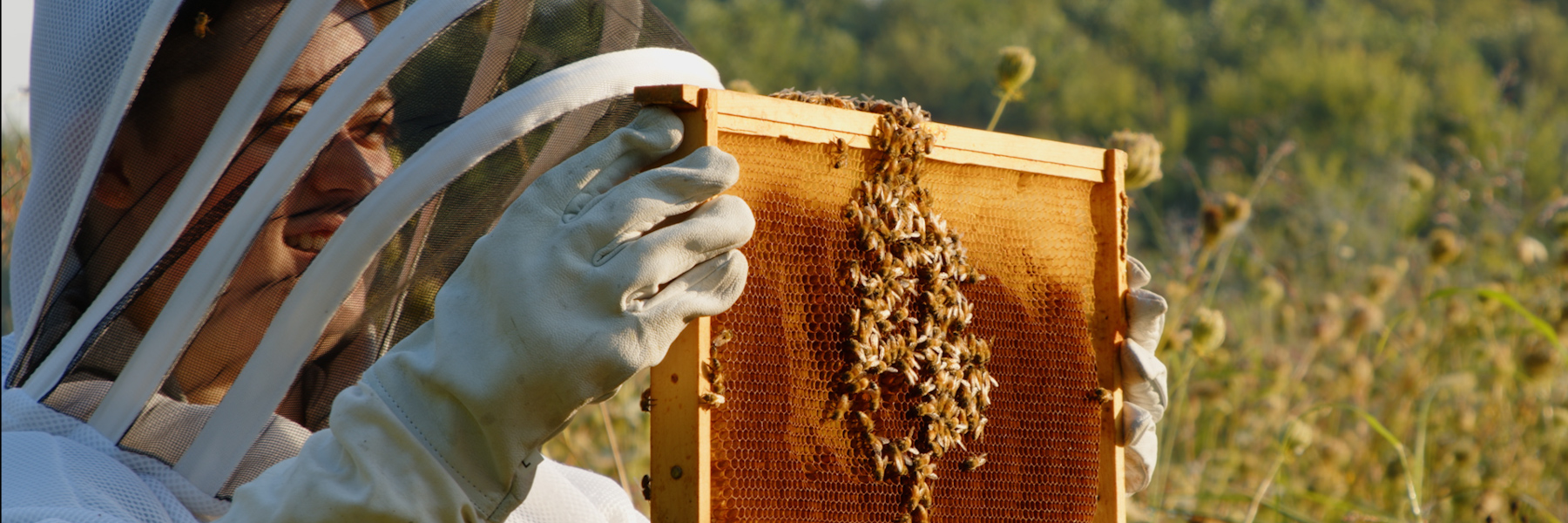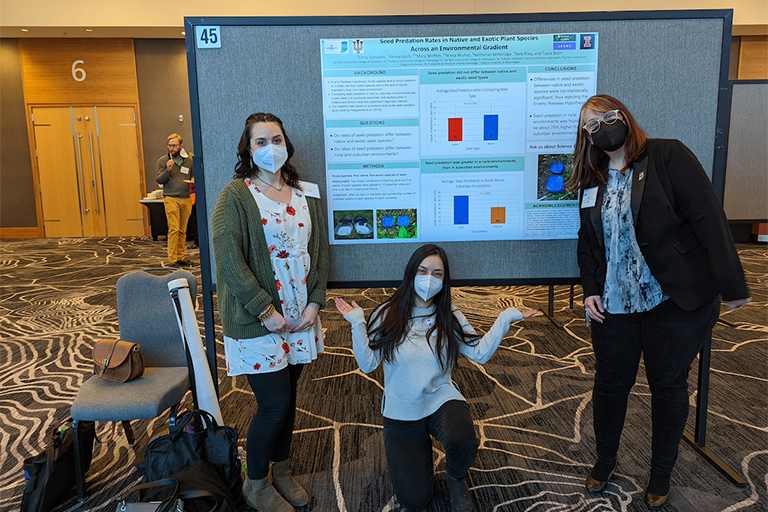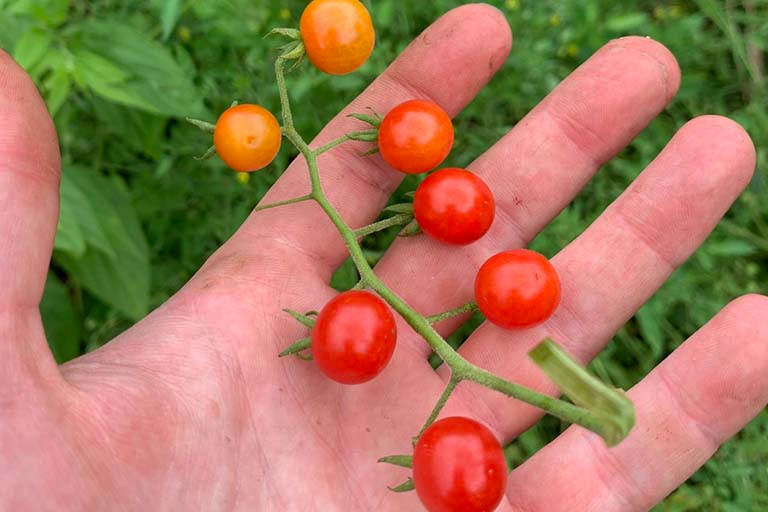Description of the video:
Lana Bolin: My name is Lana Bolin, and I'm part of a project studying how microbes promote plant resilience to drought.
[Video opens with footage of Lana Bolin and a fellow student in a corn field analyzing the crops. The background and surrounding visuals around Lana are colored out, highlighting her specifically, with an overlay labeling her Lana Bolin, Ph. D. Biology Student.]
Lana Bolin: We drove around to about 70 farms across the Midwest…
[Footage of a truck driving through rural farmland.]
Lana Bolin: …and we collected soil from the farms, brought them back to the greenhouse, and we inoculated them onto corn plants.
[Footage of Lana Bolin sorting different soil types amongst different flowering pots.]
Lana Bolin: We're also collaborating with social scientists, and they interviewed the farmers to understand how they're managing those fields where we took the soil.
[Close-up shot of Lana Bolin measuring the stalk of a corn plant. The shot then jumps to an aerial view of a recently planted corn field being irrigated.]
Lana Bolin: We know whether our soils came from fields that were irrigated or fields where they tilled or they didn't till.
[Aerial view of a combine harvester gathering corn crops.]
Lana Bolin: We can link those farmer management decisions to the resilience that the microbes confer to the plants.
[Close-up shot of someone pointing to a cut corn stalk for illustrative purposes.]
Lana Bolin: So we can see, well, what are the actual traits that the microbes are expressing that help plants or hurt plants? We're hoping that this research will help us understand how farmers' management decisions…
[Shot of Lana Bolin holding up a beaker of dark blue liquid close to her face as she examines it.]
Lana Bolin: …affect their soil microbial community and then how these microbes will affect their crops' resilience to drought.
[Fade to black before an Indiana University logo appears along with the website address: research.impact.iu.edu]








